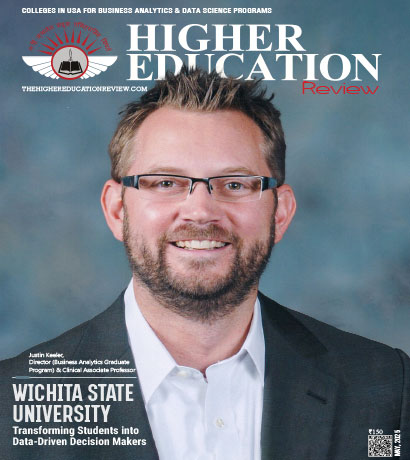Choosing the Right Medical Tuition Program: A Comprehensive Guide
 A career in medicine is an honorable and difficult road that calls for commitment, enthusiasm, and a strong base of knowledge and abilities. The correct tutoring program must be chosen in order to maximize your learning capacity because medical education is highly specialized and necessitates lengthy study. It might be difficult to choose the best medical tuition program with so many possibilities accessible. This thorough guide examines important elements to take into account while selecting a medical tuition program in an effort to help future medical professionals make an educated selection.
A career in medicine is an honorable and difficult road that calls for commitment, enthusiasm, and a strong base of knowledge and abilities. The correct tutoring program must be chosen in order to maximize your learning capacity because medical education is highly specialized and necessitates lengthy study. It might be difficult to choose the best medical tuition program with so many possibilities accessible. This thorough guide examines important elements to take into account while selecting a medical tuition program in an effort to help future medical professionals make an educated selection.
Accreditation and Reputation
Accreditation and reputation are important factors while choosing a medical tuition program. Through accreditation, regulating bodies may be guaranteed that a program is up to par in terms of quality and efficacy. Search for courses that have been approved by reputable bodies like the Liaison Committee on Medical Education (LCME) or the Accreditation Council for Continuing Medical Education (ACCME). Examine the program's reputation by looking at student and alumni reviews, instructor credentials, and success rates. A reputable program can improve your qualifications and expand your options for further study or work.
Curriculum and Course Structure
Your educational experience in a medical tuition program is greatly influenced by the content and course structure. Check the program's curriculum to see if it thoroughly covers the important medical topics. Through clinical experiences and hands-on instruction, a well-designed program should strike a balance between academic understanding and practical application. A wide range of medical specialties, such as anatomy, physiology, pathology, pharmacology, and clinical skills, should be offered by programs you choose. To meet your unique situation, take into account the course structure's flexibility, such as part-time or onlines choices.
Faculty Expertise and Support
Your medical education's quality may be significantly impacted by the knowledge and assistance offered by the professors. Make sure the program's instructors are professionals in their industries by looking into their backgrounds and expertise. Throughout your academic career, knowledgeable academics may provide insightful advice, mentoring, and direction. To learn more about the degree of individualized attention and assistance you may anticipate, find out the faculty-to-student ratio. Your educational experience can be improved and a supportive environment can be fostered in a program with devoted and approachable faculty members. For instance, CASPer Test Prep can make you tough enough to cope with skeptical questions too.
Clinical Exposure and Practical Training
Practical training and clinical exposure are crucial parts of medical education, which extends beyond textbooks and lectures. Consider the options for clinical experience and hands-on training while choosing a medical degree program. Select programs that offer lots of chances to gain practical experience in clinical settings including hospitals, clinics, and healthcare institutions. Rotations and internships that let you interact with seasoned medical staff, monitor patient care, and put your classroom learning into practice are features of a well-rounded program. Practical training helps you gain the essential competence and confidence by honing your clinical abilities and offering insightful information about the reality of medical practice.
Research Opportunities
Research participation is an essential component of medical education and advances the discipline. Examine whether the medical tuition program you're thinking about provides pupils with research chances. You may learn more about certain medical topics through research activities, improve your critical thinking and problem-solving abilities, and add to scientific knowledge. In order to gain access to cutting-edge research projects and mentors who can assist you with the research process, look for programs that have active research departments or partnerships with research institutes.
Flexibility and Convenience
The requirements of a medical education can be rigorous and time- and energy-consuming. To make sure that the medical tuition program fits with your unique circumstances and responsibilities, it is essential to take into account the flexibility and convenience of the program. In order to meet any other obligations, you may have, consider whether the program provides flexible scheduling alternatives, such as part-time or evening classes. Additionally, find out if the course offers online learning options, which may be useful for people who prefer self-paced or remote studying. While pursuing your medical education, flexibility and convenience can help you keep a healthy work-life balance.
Support Services and Resources
Your performance in a medical education program can be greatly influenced by your access to resources and a strong support network. Ask about the assistance programs that are offered, such as academic advising, career counselling, and tutoring services. You may use these services to help you manage your homework, deal with academic difficulties, and plan your future job path. Additionally, take into account the accessibility of libraries, research centers, and cutting-edge tools that might improve your educational experience and support your academic goals. You may maximize the benefits of your medical education by taking use of adequate support services and resources, which can foster a positive learning environment.
Cost and Financial Aid Options
One crucial aspect to take into account is the price of a medical education program. Consider the tuition costs for the program as well as other costs, such textbooks, lab equipment, and clinical rotations. To help with the financial load, it is essential to ascertain whether the program offers financial assistance alternatives, scholarships, or grants. To strike a balance between affordable tuition and high-quality instruction, investigate and evaluate various programs. Consider the possible return on investment in terms of prospective earnings and future employment chances as well. It is critical to balance the program's worth and benefits against its expense.
Alumni Network and Career Support
Your employment chances after graduating from a medical tuition program might be significantly impacted by the size and scope of an alumni network. Ask about the alumni network of the program and its participation in professional and networking events. A strong alumni network may offer guidance, help with job placement, and important contacts in the medical industry. Additionally, look at the program's career assistance services, such as resume writing, interview coaching, and job placement tools. Your professional development can be boosted, and career services and strong alumni support can make it easier for you to enter the medical field.
Conclusion
Selecting the best medical tuition program is an important choice that might have a big influence on your medical career. You can make a well-informed decision by taking into account elements like accreditation and reputation, curriculum and course structure, faculty expertise and support, clinical exposure and practical training, research opportunities, flexibility and convenience, support services and resources, cost and financial aid options, alumni network and career support, and support services and resources. Spend some time learning about and comparing various programs, visiting campuses, and speaking with alumni and current students.

